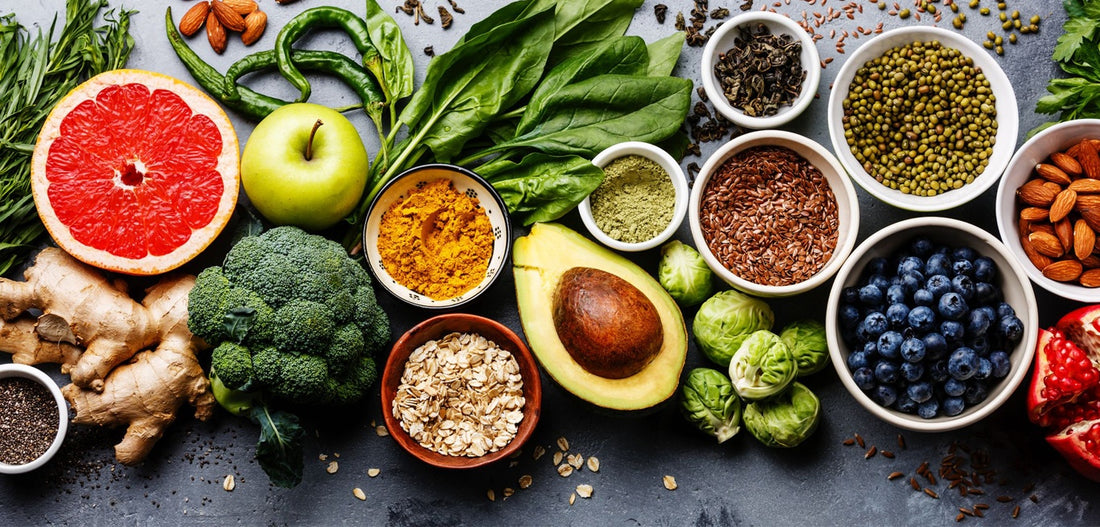If you spend any time following health and wellness news, then you’ve probably noticed that plant based diets — including vegetarian and vegan diets — have been garnering a lot of attention in the media. High-level professional athletes have even started jumping on the bandwagon, adopting a variety of plant-based diets, including going full vegan.
With more and more dietitians, nutritionists, medical associations, and other health authorities praising the virtues of plant-based diets, maybe it’s time you gave it a try too. Here are six ways that a plant-based diet can boost your health.
1. More Energy
Of the three macronutrients (protein, carbohydrates, fats), protein takes the most energy to digest. In fact, approximately 20-30% of the calories in the protein you eat goes to digesting it — many times more than carbs (5-10%) or fats (0-3%).
And considering that digestion accounts for a good percentage of the energy we expend every day (this is hard to measure, so estimates vary as to exactly how much), the food you choose to eat is bound to have a drastic effect on the amount of energy you have left over to do everything else. No wonder you feel like taking a nap after eating that cheeseburger.
On top of this, fruits and vegetables contain the widest array of vitamins, minerals, and other nutrients that support overall health. This includes antioxidants, which perform many important functions in the body, including preventing and repairing cell damage and supporting the immune system.
2. Easily Maintain a Healthy Weight
One of the ways that a plant-based diet can help you maintain a healthy weight is through the increased fiber that comes from eating more whole grains, fruits, and vegetables. Higher fiber increases feelings of satiety after a meal, helping to prevent overeating. There is even emerging research that suggests that a higher fiber diet can keep your appetite in check by influencing the production of hormones that control the feelings of hunger and fullness.
Focusing on whole plant foods also naturally makes it very hard to overeat. Vegetables (especially fibrous vegetables) tend to be low in calories, and both fruits and vegetables have a high water content, another characteristic that makes them more filling.
3. Lower Risk of Chronic (“Lifestyle”) Diseases
Plant-based diets have been linked to a reduced risk of many chronic diseases that are common in modern society, including diabetes, heart disease, Alzheimer’s, and certain forms of cancer.
These are often referred to as “lifestyle diseases,” because they are heavily dependent on basic everyday choices, including diet.
One of the ways a plant-based diet may reduce your risk of chronic disease is by reducing inflammation throughout your body. Inflammation has been identified by medical professionals as a major contributor to just about every chronic disease in existence. Plant foods, by virtue of being rich in inflammation-fighting compounds like antioxidants, may be one of the best hedges against chronic disease.
4. Improved Digestion
As we mentioned above, plant based diets require much less energy for digestion. Many people have issues digesting animal products — especially dairy — so limiting these or removing them altogether from your diet can ease the burden on your digestive tract.
Eating more plants and cutting back on (or cutting out) animal products also does wonders for your gut microbiome, which positively affects every level of your health and wellbeing.
5. Mental Clarity
Plant based diets also support mental function in a variety of ways.
The antioxidants that are found in abundance in fruits and vegetables are key for brain health, lowering inflammation and protecting you from the oxidative damage caused by free radicals. Evidence suggests that flavonoids (a type of antioxidant) in particular can promote better learning, memory, and overall cognitive function.
In order to take full advantage of the abundance of flavonoids found in plant foods, eat a variety of different colored fruits and vegetables. Flavonoids are the compounds that give plants their array of vibrant colors, and each confers a slightly different benefit.
6. Know You’re Helping the Earth (Including Other Animals)
This one may not affect your health quite as directly, but it’s important none the less.
A plant-based diet is the most earth-friendly way to eat by far — and a healthier planet is better for all of us. We also think you’ll find that doing less harm to animals and living in harmony with the life around you will improve your mood and have you feeling better in general. And that can only be good for your health.

